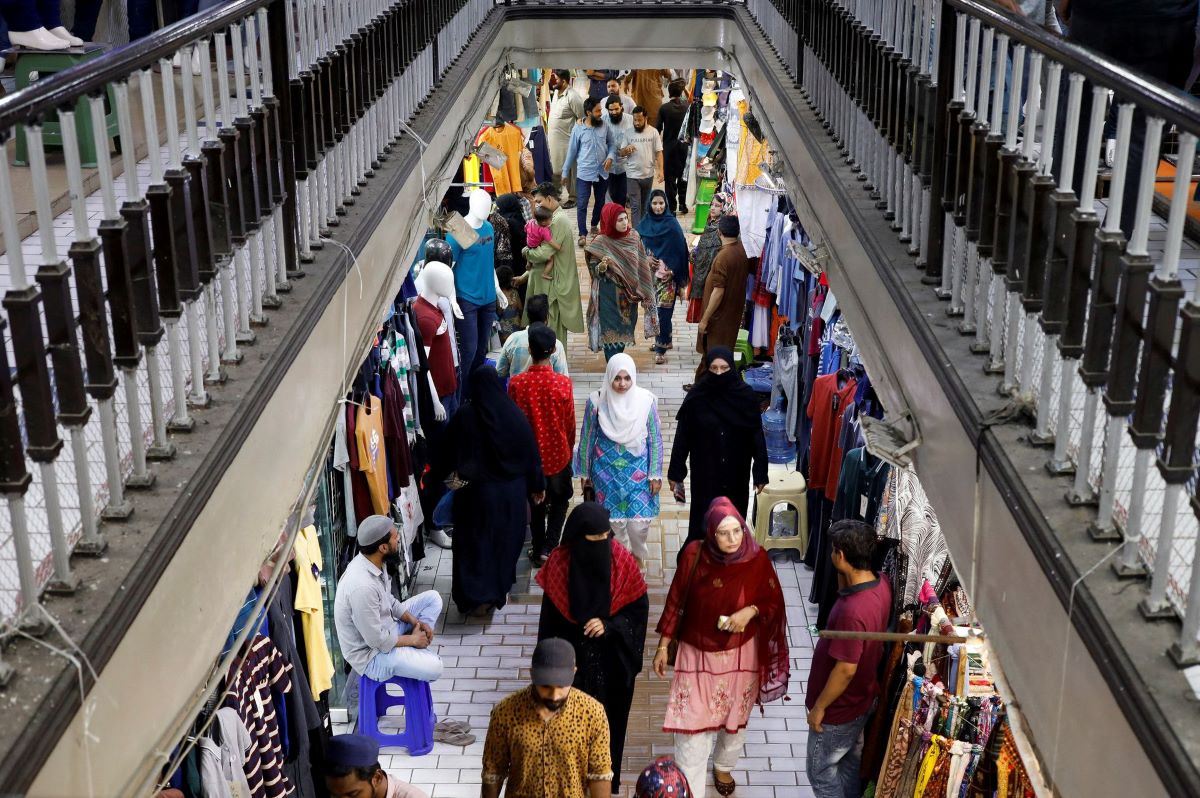The lead up to Eid al-Fitr, expected to fall on Saturday in Pakistan to mark the end of the holy month of Ramadan, traditionally sees the highest sales of the year.
But this year, the country is experiencing a crippling economic crisis.
“There has been a 20 percent reduction in sales across all categories except women’s clothing,” Tariq Mehboob, chairman of the Chain Store Association Pakistan (CAP) and CEO of Royal Tag, a clothing brand for men, told Reuters news agency.
Inflation clocked in at 35 percent in March, fuelled by a depreciating currency, a rollback in subsidies, and the imposition of higher tariffs to secure a bailout package of $1.1bn from the International Monetary Fund.
Food inflation has risen to more than 47 percent, and even the wealthier professional class is making lifestyle changes to deal with rising prices.
“Pakistanis have lost more than 50 percent of their wealth in the last two years in the form of depreciation, so you’re now selling to people with 50 percent less available funds, while the cost has gone up 100 percent,” stated Asad Shafi, owner of female clothing brand Cross Stitch.
“The expectation of fashion retailers is so low that even meeting breakeven or bare minimum sales just to stay alive is acceptable,” he added.
Asfandyar Farrukh, co-founder of CAP and managing director of Hub, a leather goods store, said that Eid shopping appears to have started sooner and peaked earlier, coinciding with salary pay days, and customers anticipating price increases.
“Established brands are not seeing as big a drop in revenues as local markets as they are frequented more by upper-middle and upper-income customers,” added Farrukh.
Usually bustling markets and shopping centres targeting the middle and lower-middle class such as Anarkali and Liberty Market in the eastern city of Lahore have both reported fewer customers.
Ashraf Bhatti, president of the Anarkali Traders Association, told Reuters that there had been a 50 percent reduction in Eid shopping this year, while Sohail Sarfaraz Mani, President of Liberty Market Traders Association, estimated the drop had been around 35 percent.
The sales drop adds to the slowing of Pakistan’s $350bn economy, which has struggled in recent months amid tough stabilisation polices, including the central bank raising interest rates to a historic high of 21 percent.
Pakistan expects its economy to grow 2 percent during the current fiscal year. However, in April, the World Bank slashed Pakistan’s growth projections from 2 percent to 0.4 percent.
